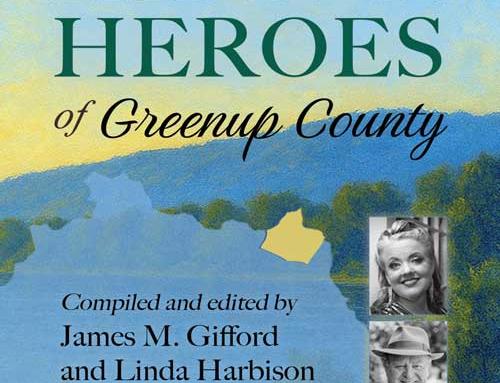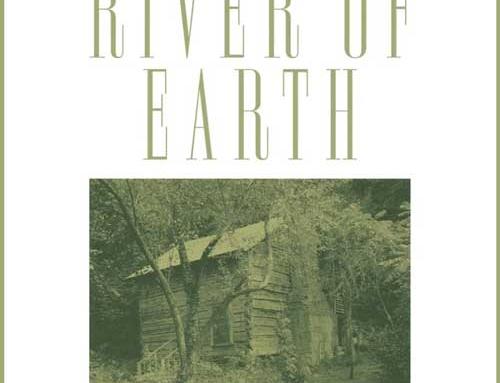Reviewed by Ted Olson ~
Most authors would hope to receive after their deaths a similarly high level of sustained interest from their readers as Jesse Stuart continues to receive from his. Stuart’s literary output is impressive, and some of his works are classics of Appalachian literature (for instance, the 1949 autobiographical book The Thread That Runs So True). One organization is primarily responsible for Stuart’s continued readership in the twenty-first century: the Jesse Stuart Foundation. Chartered in Louisville, Kentucky, in 1979 and subsequently based in Ashland, the foundation, according to its website, is “devoted to preserving the human and literary legacy of Jesse Stuart.” In 1986, the foundation began reissuing Stuart’s out-of-print books and now promotes books by other authors associated with Kentucky and Appalachia.
 The success of the Jesse Stuart Foundation has largely resulted from the commitment of one person: Dr. James M. Gifford, who has been its executive director since 1985. Having first read Stuart’s books years before heading the organization, Gifford is likely the foremost scholar of Stuart’s life and work. Jesse Stuart: An Extraordinary Life contains the fruits of Gifford’s insights. Co-written with Erin R. Kazee, the book is not a literary biography. Instead, it focuses on Stuart’s life, based on details from multiple conversations with many members of the Stuart family and from meticulous research into written sources, including letters and newspaper clippings.
The success of the Jesse Stuart Foundation has largely resulted from the commitment of one person: Dr. James M. Gifford, who has been its executive director since 1985. Having first read Stuart’s books years before heading the organization, Gifford is likely the foremost scholar of Stuart’s life and work. Jesse Stuart: An Extraordinary Life contains the fruits of Gifford’s insights. Co-written with Erin R. Kazee, the book is not a literary biography. Instead, it focuses on Stuart’s life, based on details from multiple conversations with many members of the Stuart family and from meticulous research into written sources, including letters and newspaper clippings.
While Gifford’s own life has long been interconnected with Stuart’s, the new biography is admirably objective, exploring with candor such topics as Stuart’s love life and his often combative relationships with fellow writers, agents, and editors. When confronting Stuart’s interpersonal conflicts and emotional immaturity, the book emphatically provides plausible explanations concerning the deeper motivations for Stuart’s behavior without resorting to facile psychological analysis.
Gifford and Kazee recount Stuart’s struggle to come to terms with what he perceived as a personal slight when in 1973 Esquire magazine ignored Stuart’s work in compiling short stories for its fortieth anniversary issue. Asking a friend to write a complaint letter to the magazine’s editor, Stuart said, “I never heard of anything like what Esquire did to me. Never! Never! A big blow in my life, but not a knockout blow.” Pointing out that Stuart had published more short stories in Esquire (58 total) than any other author, Gifford and Kazee suggest that Stuart’s strong reaction was understandable.
Jesse Stuart: An Extraordinary Life also addresses Stuart’s frustration with being labeled – marginalized, as he saw it – as a regional writer. He had lived in Washington, D.C., during his World War II military service, and he had taught in Reno, Nevada, in Egypt, and in the Philippines, and had traveled in Europe and Africa. “So why . . . should I be the only one considered that little regionalist?” Stuart apparently wondered aloud. Gifford and Kazee are clearly on Stuart’s side when they discuss negative consequences brought about when literary critics and the general reading public view literature primarily from a regional – as opposed to a universal – perspective.
Painstakingly conceived and designed, this book features an agreeable font size, extensive endnotes and appendices, illuminating photo captions, and a generous array of rare photographs. It documents the career of an author who was born and reared in Appalachia and who extensively chronicled people and places of that region. Yet Gifford and Kazee make the case that Stuart’s work is not only of regional significance but also of national and international interest.
Professor of Appalachian Studies at East Tennessee State University, Ted Olson is the author of Breathing in Darkness: Poems and Blue Ridge Folklife and the editor of several books that explore Appalachian cultural history. This review was published in the Summer 2011 issue of Now & Then: The Appalachian Magazine, published by the Center for Appalachian Studies and Services at East Tennessee State University.
Reviewed by Ted Olson ~
Most authors would hope to receive after their deaths a similarly high level of sustained interest from their readers as Jesse Stuart continues to receive from his. Stuart’s literary output is impressive, and some of his works are classics of Appalachian literature (for instance, the 1949 autobiographical book The Thread That Runs So True). One organization is primarily responsible for Stuart’s continued readership in the twenty-first century: the Jesse Stuart Foundation. Chartered in Louisville, Kentucky, in 1979 and subsequently based in Ashland, the foundation, according to its website, is “devoted to preserving the human and literary legacy of Jesse Stuart.” In 1986, the foundation began reissuing Stuart’s out-of-print books and now promotes books by other authors associated with Kentucky and Appalachia.

The success of the Jesse Stuart Foundation has largely resulted from the commitment of one person: Dr. James M. Gifford, who has been its executive director since 1985. Having first read Stuart’s books years before heading the organization, Gifford is likely the foremost scholar of Stuart’s life and work. Jesse Stuart: An Extraordinary Life contains the fruits of Gifford’s insights. Co-written with Erin R. Kazee, the book is not a literary biography. Instead, it focuses on Stuart’s life, based on details from multiple conversations with many members of the Stuart family and from meticulous research into written sources, including letters and newspaper clippings.
While Gifford’s own life has long been interconnected with Stuart’s, the new biography is admirably objective, exploring with candor such topics as Stuart’s love life and his often combative relationships with fellow writers, agents, and editors. When confronting Stuart’s interpersonal conflicts and emotional immaturity, the book emphatically provides plausible explanations concerning the deeper motivations for Stuart’s behavior without resorting to facile psychological analysis.
Gifford and Kazee recount Stuart’s struggle to come to terms with what he perceived as a personal slight when in 1973 Esquire magazine ignored Stuart’s work in compiling short stories for its fortieth anniversary issue. Asking a friend to write a complaint letter to the magazine’s editor, Stuart said, “I never heard of anything like what Esquire did to me. Never! Never! A big blow in my life, but not a knockout blow.” Pointing out that Stuart had published more short stories in Esquire (58 total) than any other author, Gifford and Kazee suggest that Stuart’s strong reaction was understandable.
Jesse Stuart: An Extraordinary Life also addresses Stuart’s frustration with being labeled – marginalized, as he saw it – as a regional writer. He had lived in Washington, D.C., during his World War II military service, and he had taught in Reno, Nevada, in Egypt, and in the Philippines, and had traveled in Europe and Africa. “So why . . . should I be the only one considered that little regionalist?” Stuart apparently wondered aloud. Gifford and Kazee are clearly on Stuart’s side when they discuss negative consequences brought about when literary critics and the general reading public view literature primarily from a regional – as opposed to a universal – perspective.
Painstakingly conceived and designed, this book features an agreeable font size, extensive endnotes and appendices, illuminating photo captions, and a generous array of rare photographs. It documents the career of an author who was born and reared in Appalachia and who extensively chronicled people and places of that region. Yet Gifford and Kazee make the case that Stuart’s work is not only of regional significance but also of national and international interest.
Professor of Appalachian Studies at East Tennessee State University, Ted Olson is the author of Breathing in Darkness: Poems and Blue Ridge Folklife and the editor of several books that explore Appalachian cultural history. This review was published in the Summer 2011 issue of Now & Then: The Appalachian Magazine, published by the Center for Appalachian Studies and Services at East Tennessee State University.




